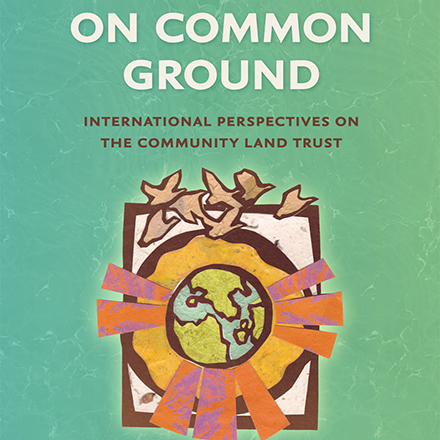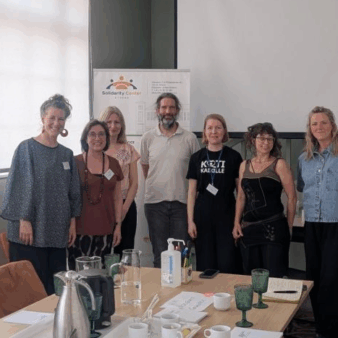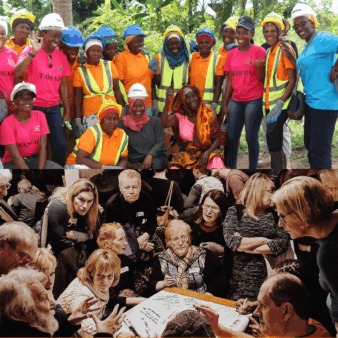
The rise and influence of Community Land Trusts (CLTs) is explored in a new book, which is available now. A total of 42 authors, from a dozen countries – including World Habitat Chief Executive David Ireland who has written a Foreword – have contributed their thoughts and experiences on the growth of the Community Land Trust movement across the world.
Since their origins in Albany, Georgia, 50 years ago – when African-Americans were fighting for political and economic equality – Community Land Trusts have become a vital and important part of the community-led housing movement. There are now hundreds across the world – including more recently in the Global South. Many have been inspired by the 2015 World Habitat Award Winner the Caño Martín Peña Community Land Trust in Puerto Rico, including in Rio.
The book – On Common Ground: International Perspectives on the Community Land Trust – is edited by John Emmeus Davis, Line Algoed and María E. Hernández-Torrales and explores five main topics.
1. BRIGHT IDEAS: surveying the diverse landscape of community-led development on community-owned land.
- The once and future Garden City.
- Features and variations of ‘CLT classic’.
- Community Land Trusts in cold markets.
- Challenges for collective property.
- Community-owned land: a platform for equitable and sustainable development.
2. NATIONAL NETWORKS: examining the proliferation of Community Land Trusts in the Global North, across North America and Europe.
3. REGIONAL SEEDBEDS: exploring the potential for Community Land Trust development in the Global South.
- Collective ownership of land in Latin America and the Caribbean.
- Regularising tenure in Brazil’s favelas and in other informal settlements.
- Caño Martín Peña Community Land Trust in Puerto Rico.
- A watershed land trust in Honduras.
- Lessons from Community Land Trust initiatives in Kenya.
- Evolution of the Community Land Trust in South Asia.
4. URBAN APPLICATIONS: showcasing the success of selected Community Land Trusts in London, Brussels, Boston, Burlington, and Denver, providing affordable housing, spurring neighbourhood revitalisation, and securing land for urban agriculture.
5. CRITICAL PERSPECTIVES: reflecting on the changing environment to which Community Land Trusts must adapt if they are to ‘go to scale’, while remaining accountable to the communities they serve.
- The long march toward racial justice.
- Bioethics and the Community Land Trust.
- Preserving urban generativity.
- Thinking beyond the generic Community Land Trust.
- The challenging, transformative complexity of community, land and trust.
John Emmeus Davis, one of the editors of On Common Ground, said:
“For more than a decade, World Habitat has helped to spur the global spread of community land trusts by raising the international profile of this innovative housing strategy and by facilitating the exchange of ideas among CLT practitioners from different countries. My hope is that On Common Ground – that would not have happened without World Habitat’s early support – will do more of the same, encouraging further growth and diversification of a unique model of community-led development on community-owned land.”
David Ireland, Chief Executive of World Habitat, said:
“This book is published at a time when people’s fundamental rights to safe and secure housing is under huge pressure – through financialisation, austerity and the climate emergency.
“But as this book illustrates, many of the solutions lie with communities taking control themselves and proves that people are stronger when they work together. Their strength is magnified when they collectively control the land where their housing is built. Through legal rights they can resist threats from predatory land developers and they have the financial strength to insulate people from the affordability jeopardy caused by financialisation. It also gives communities the strength to commission and design better homes that meet people’s needs and that are capable of withstanding the dangers wreaked by an increasingly unpredictable climate.
“When I’ve visited Community Land Trusts, every resident I’ve met has talked of how where they live has improved their life and how it makes them happy. It’s an unarguable endorsement of this form of housing and the best evidence of what good housing really is.”




Join the discussion